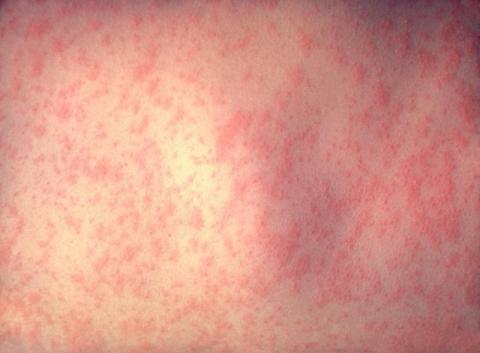A-Level students urged to add MenACWY vaccine to the checklist ahead of university

With exam season in full swing, the Public Health Agency (PHA) is urging everyone currently doing A-Levels to think next about getting the meningococcal ACWY vaccine ahead of starting university in September.
Dr Lucy Jessop, Consultant in Health Protection at the PHA, explained: “Heads are stuck in the schoolbooks at this time of year, but for many pupils attention will soon be turning to drawing up plans for heading off to university after the summer. Along with finding accommodation and buying pots and pans, we are urging students to put getting the MenACWY vaccine at the top of their ‘to do’ list.
“The MenACWY vaccine helps protect against meningococcal disease, which new university students are at particularly high risk of contracting in the first weeks of term, when they will come into contact with many new people of a similar age.
Meningococcal bacteria can cause meningitis (inflammation of the lining of the brain) and septicaemia (blood poisoning). Both diseases are very serious and, especially if not diagnosed early, they can kill.
“The best way to protect against meningococcal A, C, W, or Y disease is to get the vaccine before starting university. Therefore, if you are aged up to 25 years and are starting university for the first time, we recommend you arrange to get the vaccine from your GP before you go to university, if you haven’t had it already.
“The start of the university year might seem far off, but it will come around quickly so now is the time to arrange to get the vaccine and tick it off your to-do list. It is really important to have it before you start university.
“Even if you have recently had the MenC vaccine, for example in school, you should still get the MenACWY vaccine. It will increase your protection against MenC and help provide protection against the three other meningococcal groups.”
You only need to have the MenACWY vaccine once. If you have already received the MenACWY vaccine in school or from your GP at the age of 14 years or over you do not require an additional dose of the vaccine.
It is still important to know the signs and symptoms of meningitis and septicaemia and seek medical help immediately if you, or someone you know, experiences them.
Look out for any of these symptoms:
- Fever, cold hands and feet
- Vomiting and diarrhoea
- Drowsiness, difficult to wake up
- Irritability and/or confusion
- Dislike of bright lights
- Severe headache or muscle pains
- Pale, blotchy skin with or without a rash
- Convulsions/seizures
- Stiff neck.
The early symptoms of meningococcal disease are similar to those of flu, so you need to be able to recognise the symptoms very quickly even if you have been vaccinated as the vaccines offered through the routine immunisation programme do not protect against all forms of the disease.
There are five main groups of meningococcal bacteria that can cause meningitis and septicaemia – A, B, C, W and Y. The same bacteria that cause these serious diseases can also be carried in the back of the nose and throat, especially in young adults.
For more information on the MenACWY vaccination programme visit www.pha.site/ACWY
